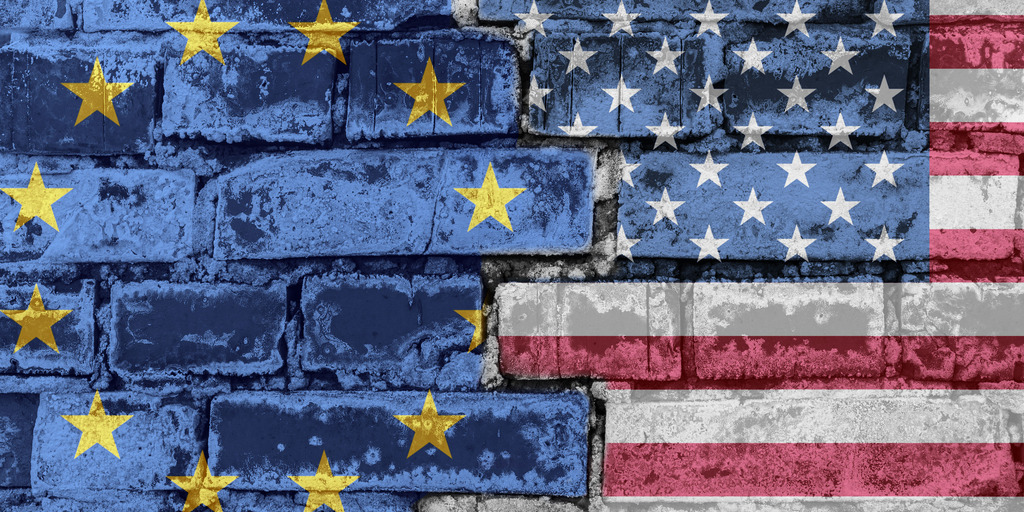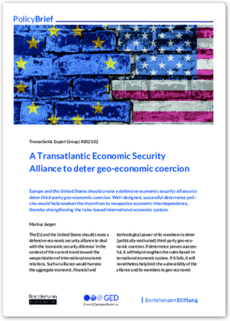This is the argument put forward by Markus Jaeger, research fellow at DGAP (German Council on Foreign Relations) and an adjunct professor at Columbia University in New York, in this policy brief. According to the author, the EU and the United States should create a defensive economic security alliance to deal with the ‘economic security dilemma’ in the context of the current trend toward the weaponization of international economic relations. Such an alliance would harness the aggregate economic, financial and technological power of its members to deter third-party geo-economic (politically-motivated) coercion. If deterrence proves successful, it will help strengthen the rules-based international economic system. If it fails, it will nonetheless help limit the vulnerability of the alliance and its members to geo-economic coercion, while increasing the costs to potential coercers.
The establishment of a transatlantic defensive economic security alliance would help deter third-party geo-economic aggression. Such an alliance should commit its members to providing economic assistance as well as coordinate retaliatory policies in case of geo-economic coercion targeting any of its members. A geo-economic attack is defined as a politically motivated discriminatory economic measure.
The policy brief sketches in a largely conceptual way what a transatlantic economic defense alliance might look like. Specifically, it lays out what the main pillars of such a regime should consist of, how policies should be designed to enhance the prospect of successful deterrence, and how America and Europe should address problematic issues related to alliance politics.
The policy brief is a publication of the Transatlantic Expert Group set up by the Bertelsmann Stiftung and the Bertelsmann Foundation in Washington, D.C.







